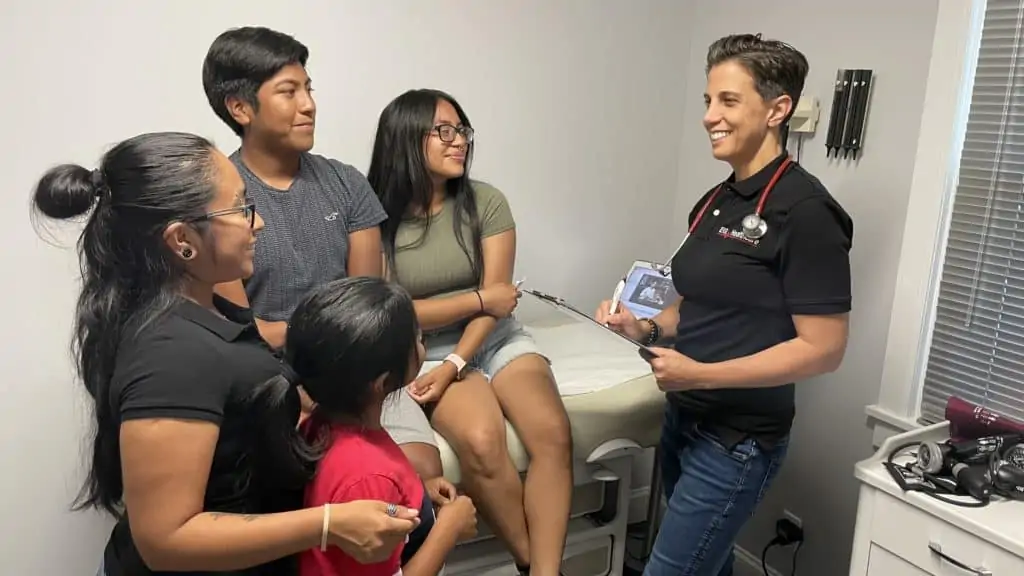
Bullying is a big problem. It is pervasive and rampant, and the results can be terrible for anyone. Bullying happens in our neighborhoods, in our schools, and even, sad to say, in our own homes. The escalating numbers about bullying are shocking and should make us think hard and act immediately.
When someone is bullied, we tend to only think about how it makes the victim feel. Oftentimes, we don’t think about what happens to the bully. However, bullying has been linked to various adverse effects both on the victim and the bully. The most impacts are poor mental health, drug use, and even suicide.
What Is Bullying?
Bullying is the repeated use of verbal, physical, or social power in a way that hurts someone physically, socially, or mentally. It happens over time and is done on purpose. It can occur when a person or group abuses their power over people who feel helpless to stop it.
Students who pick on other kids are often sad and have problems and difficulties. They might be trying to compensate for the lack of recognition, attention, or love in their own lives. These children need to feel strong, and it seems like they like hurting other people. However, they often don’t realize how the person they bully feels.
Bullies often continue because they want to be in charge and raise their own status in society. People often bully because they think it’s okay to behave that way. Sometimes, they don’t even realize that they are already bullying someone or don’t understand their aggressive behavior and how much it hurts and stresses others out.
What Are The Different Types Of Bullying?
Bullying comes in different forms, but all of them have negative impacts. Teasing is frequently the start of more serious kinds of bullying. The following are the different types of bullying:
Physical Bullying
Physical bullying is when someone uses their body to try to scare or hurt someone else. It usually involves repeated hitting, pushing, blocking, tripping, kicking, or touching inappropriately.
Verbal Bullying
Verbal bullying is putting others down and being mean to them through words. This includes calling someone names and making racist or homophobic jokes or comments. Other forms are insulting, explicitly sexual comments, or foul or hurtful language.
Social Bullying
Social bullying, sometimes called “covert bullying,” happens behind the victim’s back. This is why this form of bullying is often harder to spot. It is meant to hurt someone’s reputation or make them feel bad. It means leaving people out of groups and spreading nasty rumors about the bullied. Thus, making it hard for the victim to get along with others and be accepted.
Cyberbullying
Cyberbullying is when someone hurts someone else on purpose repeatedly using a computer, phone, or other electronic devices. Some examples of cyberbullying are:
- Abusive or deeply offensive texts, posts, emails, images, or videos
- Excluding people online on purpose
- Spreading nasty gossip or rumors
- Posting hurtful and unpleasant comments about someone
What Are The Effects Of Bullying?
Bullying has detrimental effects on the victims, the bully, and even the bystanders. Everybody loses when bullying occurs because it fosters an atmosphere of fear. It can hurt a person’s physical, mental, academic, and social health in ways that may be carried out until adulthood.
Negative Effects on Bullied Children
Bullying can end up hurting people in ways that last for a long time. The bullied may end up blaming themselves for why they were bullied. They may start to see themselves as an undesirable and weak individual. Other adverse effects include:
- Difficulty in keeping and maintaining healthy relationships
- Isolating oneself and avoiding conflict
- Becoming extremely insecure
- Declining academic performance
- Not wanting to go to school
- Feeling defeated and hopeless
- Mental health issues such as anxiety and depression
- Low self-esteem
- Frequent nightmares
- Resorting to substance use
- Increased risk of self-harm and suicide
Negative Effects On The Bully
Children who bully others are more likely to participate in violent and other harmful activities than adults. Bullies are also prone to a wide range of mental health problems, and they are more likely to:
- Have constant drug and alcohol abuse
- Take part in sexual activity at a young age
- Start fights, destroy property, and stop going to school
- Show high levels of aggression, which can affect their lives in many ways
- Cause trouble in the community
- Be violent or abusive to their partners, friends, and families
- Have criminal records as an adult
Negative Effects On The Bystanders
Children who witness the bullying acts, or the “bystanders,” can also experience unfortunate effects. After all, most people feel bad when they see another person hurt or insulted. Being a bystander to bullying can make a person feel a lot of different emotions and stress.
Watching bullying behavior may lead to the following:
- Unmotivated to go to school
- Suffer from mental health issues
- Worry that they could be the next victim of bullying
- Feel extreme guilt for not stopping the bullying acts
If support is not given, children may tend to give up and surrender to their helplessness. Then, the downward cycle that leads to depression gets worse. They will feel like they have no hope and think there is no way out.
As the kids involved in bullying grow up and become adults, they may still have low self-esteem. This makes it hard for them to make and keep relationships. They may also have trouble trusting people, affecting their personal and professional relationships.
You can see that not only the people who are bullied need help. It is imperative to teach kids how to deal with their feelings and handle their emotions well. Helping them understand the results of their actions will lead to better life choices.
What Are The Signs Your Child Is Being Bullied?
When kids are bullied, many don’t say anything because they fear what will happen. They usually don’t tell their friends or even their parents. And if they don’t speak up about it, it usually gets worse.
Parents need to be keen observant when it comes to their children. Here are some signs that your child is bullied:
- Damaged or missing belongings
- Unexplainable cuts and bruises
- Physically sick or pretending to be sick
- Headaches or stomach aches
- Trouble concentrating
- Mood swings
- Frequent nightmares
- Sleep pattern changes
- Being aggressive
- Declining grades
- Starts to pull away from friends and families
- Hurting himself or others
- Talks about suicide
What Can You Do If Your Child Is The Bully?
Nobody wants to hear that their child bullies other kids. It hurts the parents to think their child is hurting other children. These reactions and feelings are normal because it’s difficult to believe that your child will purposely harm or hurt another child.
How well kids get along with others is a good sign of how healthy their minds are in general. If your kid is picking on others physically or verbally, it could be a sign that they are in a lot of distress. He might have trouble controlling his feelings and actions because of anxiety or depression.
Even though bullies are often pictured as big and tough boys or girls, anyone can be a bully. Keep in mind that bullying is about the behavior, not about who the person is. Children who bully other kids should be held responsible for their actions and have to deal with the consequences.
Once your child is identified with the bullying behavior, the following steps can help you handle them effectively:
Talk with your child and listen actively.
Children don’t always know when they are being mean. They might think they’re “just having fun” and not realize how bad it is for the other child. Help them understand what bullying is and ensure they know that it’s not okay to act in a wrong way.
Find out why the behavior is happening.
Try and discover why your child is acting in a way that hurts other people by having an open, non-judgmental conversation with them. You could ask your child how they feel, if they are also being bullied, or if their friends are putting pressure on them to bully someone else.
Make it clear that bullying isn’t allowed.
Set clear consequences for aggressive behavior, like losing privileges such as taking their mobile phone away for a period of time. It may help your child if you make rules, keep an eye on their activities, and by showing them what to do. You can change a child’s behavior, although it will be hard and it will take a long time. Keep your temper in check and treat others with kindness and respect.
Be a model parent.
Show them how to be kind and caring. Explain that bullying hurts people physically, mentally, and emotionally and that the effects can last for a long time. They need to know how wrong their actions can be.
Set an example of nonviolence in your home, and don’t hit or spank your child as a punishment. Physical punishment only makes people more sure that violence can get them what they want.
Takeaways
The most important thing you can do is to talk to your kid about his day-to-day activities. This will help you spot signs of bullying or other problems sooner. Having open and honest conversations with your child about bullying will give them the confidence to stand up for themselves and others.
Your child might feel better if they talk to a counselor or a psychiatrist, whether being the one bullied or the bully. We know your child may be worried at first about seeing a counselor. If that happens, talk to your child about how they can get assistance and remind them that it’s always okay to ask for help.







